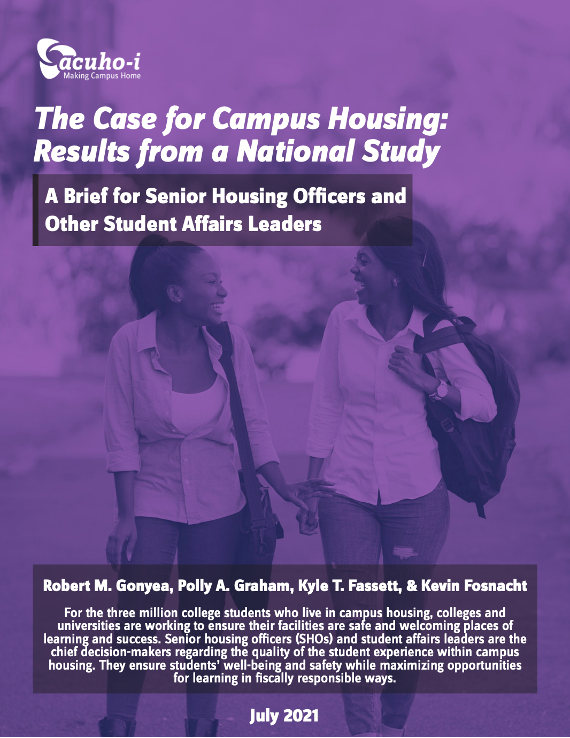In the most comprehensive study of student housing experience in decades, students who participated in a residential college experience were more likely to persist year-over-year than those who did not. “The Case for Campus Housing” was sponsored by the Association of College and University Housing Officers – International (ACUHO-I) and is the result of a multi-year NSSE study.
According to data collected by NSSE in 2018, first-year students who live on campus persist to the second year at a rate 2.0 percentage points higher than those who live independent of their families off campus (92 percent vs. 90 percent). This difference is largely attributable to engagement in learning activities that took place in the residence, including the ability to attend classes, interact with faculty, meet with advisors, study and do projects with other students, use academic support services, and attend social, diversity-related, and wellness activities. Sophomore students who live on campus persist to the third year at a rate about 2.2 percentage points higher (94.9 percent vs. 92.8 percent) than those who live independent of their families off campus. In addition, those sophomores who live further than 10 minutes from campus are less likely to persist than those who live within 10 minutes. Additional findings are reported on roommate-matching policies and living-learning communities.
“With a diverse data set of 33,000 respondents from 76 residential institutions, this is the most comprehensive study of the student housing experience in decades,” said Robert M. Gonyea, Ed.D., associate director of the Center for Postsecondary Research and co-author of the report. “The National Survey of Student Engagement is proud of our partnership with ACUHO-I in delivering affirming and consequential findings to residence life professionals, student affairs administrators, and other campus leaders.”


